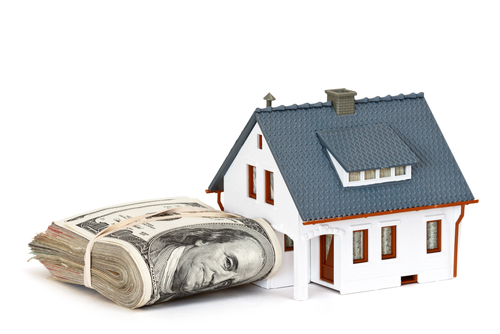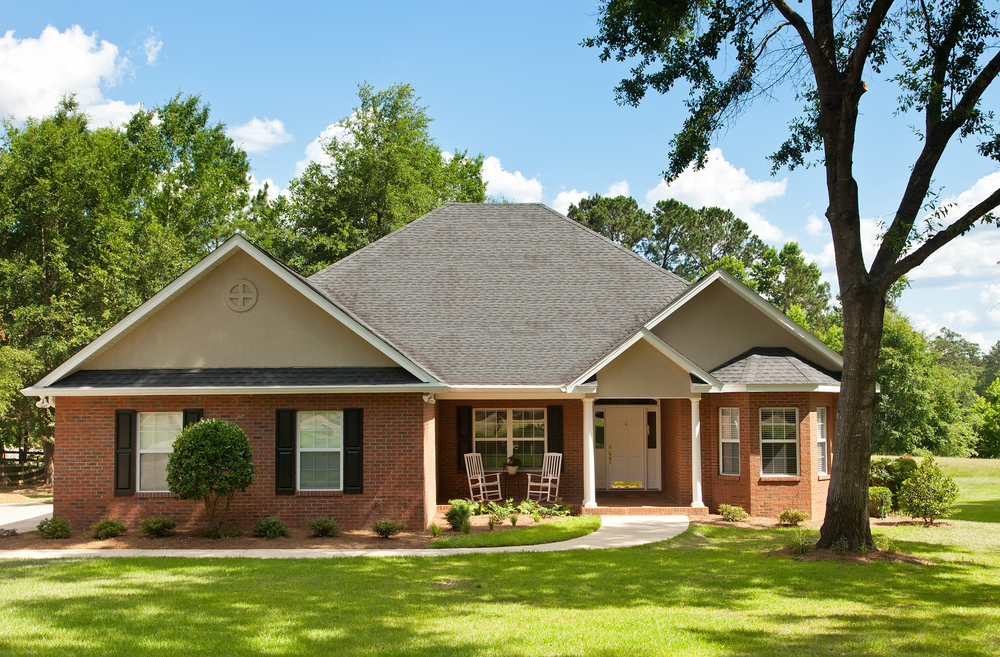 How can you deal with retiring when your income is too low? One way is to use a reverse mortgage to take advantage of your home equity, assuming you own a home. You can even explore options for refinancing reverse mortgages when you need to, such as if you want to add your spouse to the agreement after the fact. To initially get such a loan, a reverse mortgage calculator is used. The reverse mortgage calculator is necessary because it takes into account current formulas and regulations in its calculations. Once the loan is in place, you pay it back many years down the line. No current repayment obligation is in place, so you can enjoy retiring your way.
How can you deal with retiring when your income is too low? One way is to use a reverse mortgage to take advantage of your home equity, assuming you own a home. You can even explore options for refinancing reverse mortgages when you need to, such as if you want to add your spouse to the agreement after the fact. To initially get such a loan, a reverse mortgage calculator is used. The reverse mortgage calculator is necessary because it takes into account current formulas and regulations in its calculations. Once the loan is in place, you pay it back many years down the line. No current repayment obligation is in place, so you can enjoy retiring your way.
Lately, I’ve heard a lot about how these reverse mortgages can be a Godsend to elderly couples who either don’t have the financial freedom to live a good life after retirement, who want to make modifications so that they can age in place or who have suffered enormous financial strain due to medical bills and caregiving costs.
According to AARP, more than 78,000 reverse home mortgages (also called Home Equity Conversion Mortgages or HECMs) were insured by the Department of Housing and Urban Development last year.
There are even men and women who specialize in obtaining reverse mortgages for clients who are calling themselves Geriatric Care Managers.
First, let me tell you that in order to be a geriatric care manager, a person needs to have been educated in nursing, gerontology, certain areas of psychology or clinical social work. So please beware of financial personnel who use that term to describe themselves.
Before rushing into a Reverse Home Mortgage, there are some things to be considered.
1. You can obtain a reverse home mortgage from a traditional lender but the borrower must be at least 62 and the home must be owned outright or the ability to pay it off with the reverse mortgage must exist.
2. You must live in your home and the home must meet certain Housing and Urban Development (HUD) department standards such as having the necessary fixtures that make it habitable. Single-family homes qualify and some condominiums, modular homes and duplexes may also qualify.
3. You must see a reverse mortgage counselor before you apply for the mortgage and there will be a fee for this session. It will be about $125.00 and it can be rolled into the loan. But unlike regular home loans, you must be able to pay your property taxes, homeowners’ insurance and homeowners’ association fees separately. (This is because you do not need to make monthly mortgage payments immediately upon obtaining your reverse home mortgage.)
4. In fact, you (or your estate) do not make payments on this type of a loan until you die, move or sell your home, and at that time, the estate pays off the reverse mortgage plus interest and any loan fees.
But what if one spouse dies? Must the other spouse immediately pay off the reverse mortgage? Well, that was the case until recently. In a situation where one spouse died and the remaining spouse (who was not listed on the reverse mortgage documents) was in danger of having his home foreclosed, a lawsuit was filed and changes have been made. Read more about that HERE in an article written by Carole Fleck of AARP.
5. When you are approved for a reverse home mortgage, you may receive the money in a lump sum, as a line of credit or in monthly payments TO you. These mortgages are available with both fixed and variable interest rates.
6. As with other home loans, there are substantial fees. Loan origination fees, closing costs, interest, mortgage premiums and service fees, so you must be very careful that there will be enough money to cover these additional costs as the loan is paid off.
According to an article by Tara Coates in AARP, an example would be: the standard HECM loan (reverse mortgage) charges a 2 percent mortgage insurance premium upfront on the home value – not the amount borrowed – as with regular forward mortgages. For example, if you own a $400,000 home, the upfront MIP would be $8,000 – whether you borrow $30,000 or $200,000.
These loans may serve a particular portion of the population but they are not for everyone. There are other alternatives which should be explored such as selling the home and purchasing a smaller one, renting out a room to a family member or close friend, refinancing to a lower percentage of interest, or selling off an insurance policy by way of a “life settlement” (which requires a large life insurance policy). Also remember that for medical expenses, Medicaid is a possibility and a person may still own their own home, a car and several thousand dollars and still be able to qualify.
There is one other thing to consider and I’ve left it until the end for a reason. With a reverse home mortgage, there may not be an inheritance left for the children or other possible beneficiaries. This may cause discord amongst family members but remember that the most important consideration is the well-being of the person who may wish to utilize the reverse home mortgage option.
LEARN TO LOVE YOUR LIFE AGAIN
 Do you feel like you need to hit the REFRESH button on your life? Download our free guide and begin to create your best life yet!
Do you feel like you need to hit the REFRESH button on your life? Download our free guide and begin to create your best life yet!




This is an excellent overview of reverse mortgages. Thanks for digging up all the details for us!
(Posting for Kathy from the Facebook thread) “My in-laws did a reverse mortgage. We didn’t like doing it and there have been a few headaches so far since their passing. However, doing it allowed her to stay in their home until her death then my father-in-law moved in with us until his death while the house was being fixed up for sale. My only suggestion is that you really research it and don’t go into it lightly!”
Kathy W.
Thanks so much for sharing, Kathy. What were the headaches that you encountered?? Do you have any specific advice on what to watch for?
Shelley
(More of our Facebook page conversation) :
Kathy W: We started the process of getting the court approval to sell the house before he died since I was his guardian, then when he died, the process had to start all over again with the executor. The reverse mortgage company has been putting a l…ot of pressure on us to get it sold. They aren’t taking into account the 3 months of it being in probate. The bank also only gives you a percentage of the value and with home values being down, it was not a lot of money. Of course the interest continues to accumulate while we wait for the courts to allow us to sell it. Just be sure you are dealing with a reputable company and ask a lot of questions. One of the issues we had was communication with the company. It was over a year before we got them to take my mother-in-law off of their info after she died. They kept sending her certified letters! They were not very organized. I had to tell them 3 times that my f-I-l moved out of the house before someone finally put it in the records. And this was a name brand bank! I’m just thinking that no one should go into it for just a little extra spending money. I explained it to my m-I-l as they worked hard all their lives for their house, now their house could give back, but once it’s gone, it’s gone!
Shelley: Excellent points! Very surprised to hear that the bank just offers a percentage of the value. If one still “owns” the property (as they advertise), they should be able to hold onto it until the home values increase again. It’s also sad that interest continues to accumulate during probate.
Kathy W. : As long as you live in the house, you don’t have to pay them back. It was their deaths and/or the moving out that started the process of paying it back. Of course the interest accumulates on any part of the money that you use. We took the… money as a line of credit so we didn’t pay interest on the whole amount, just what we had taken out. Interesting note: when the majority of the money was still in the bank and we had not withdrawn it, we were actually earning interest. That helped outweigh the interest charged at that time. Then once we had withdrawn more than half, the interest we were being charged got to be more. Did that make sense?